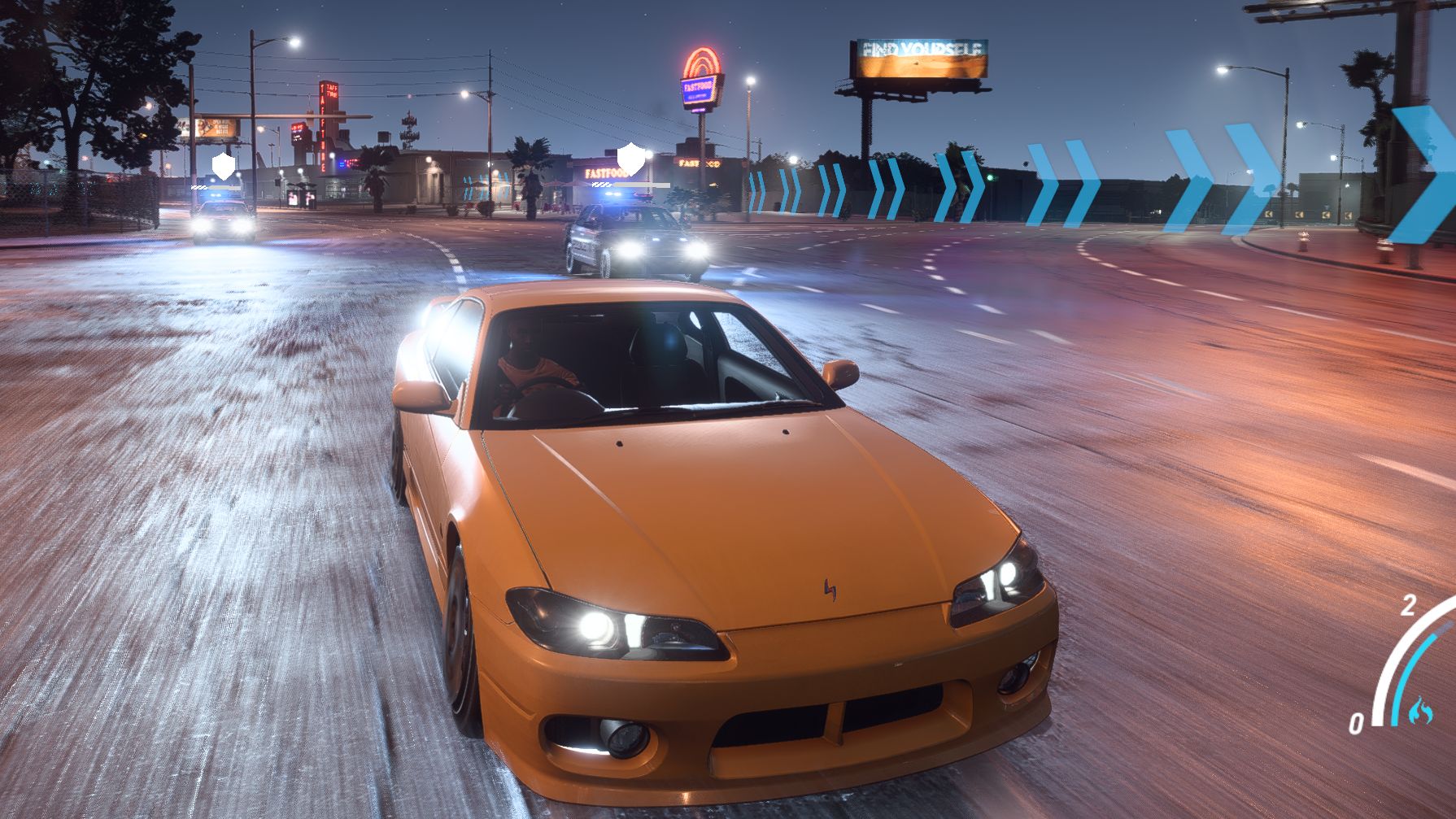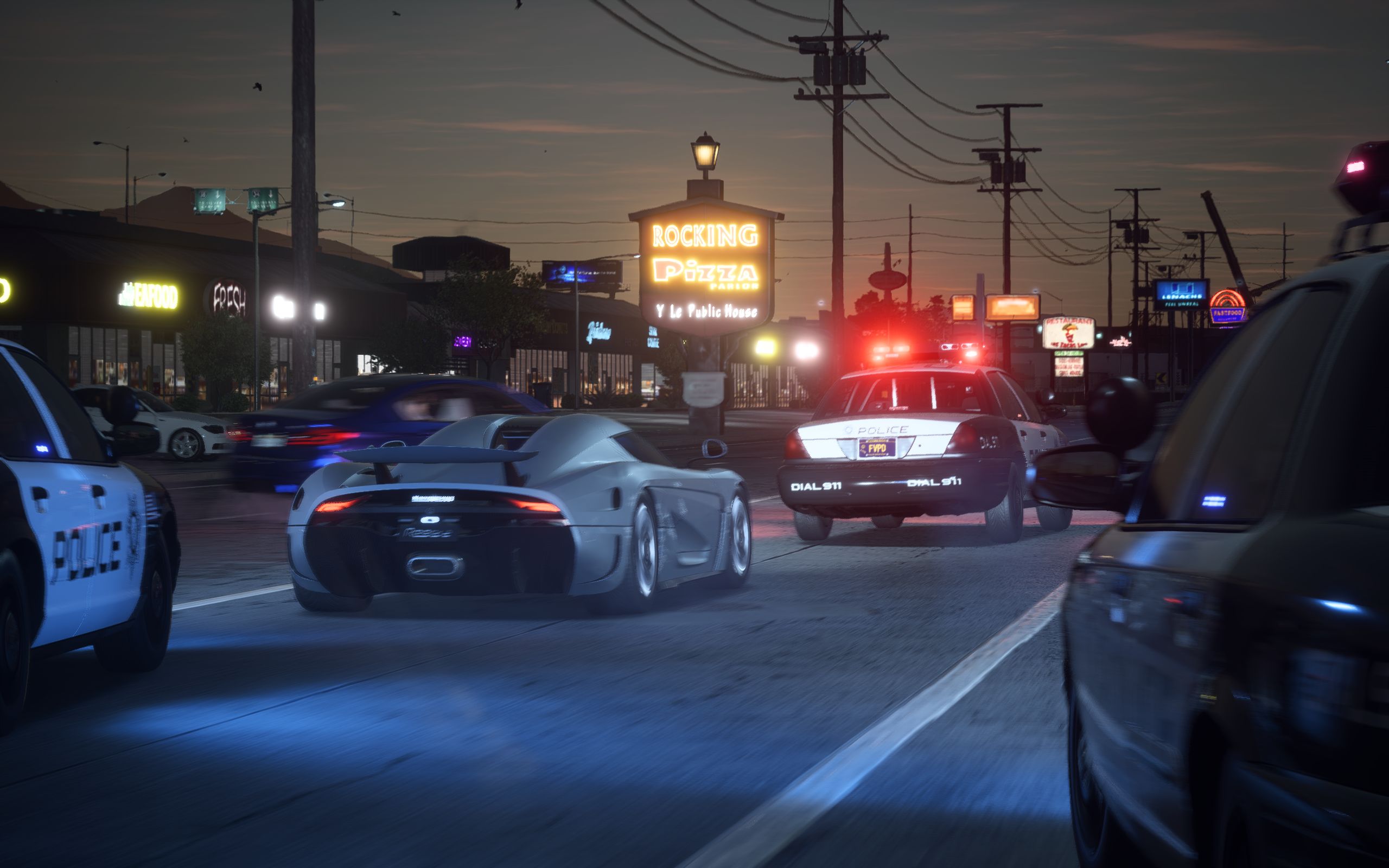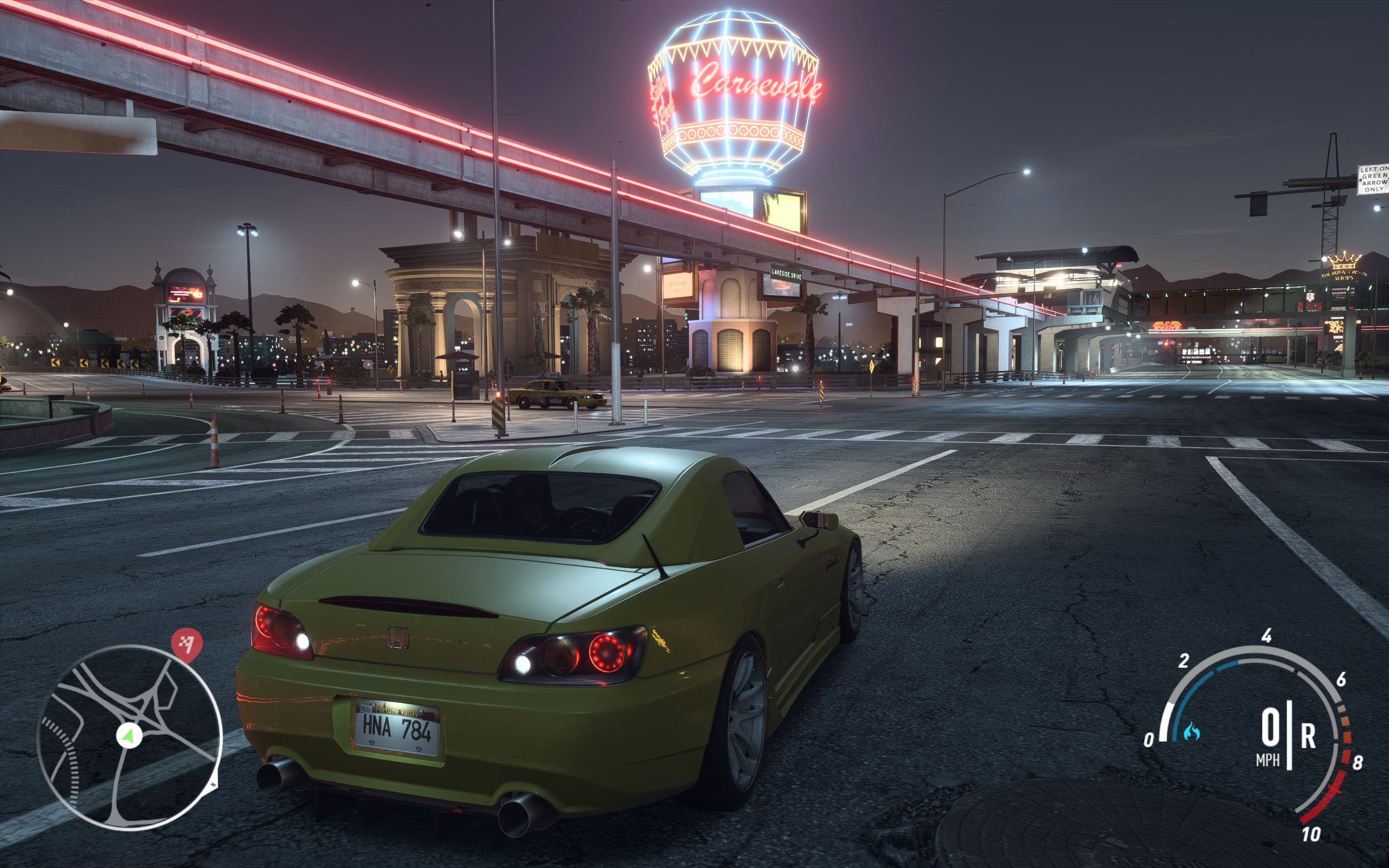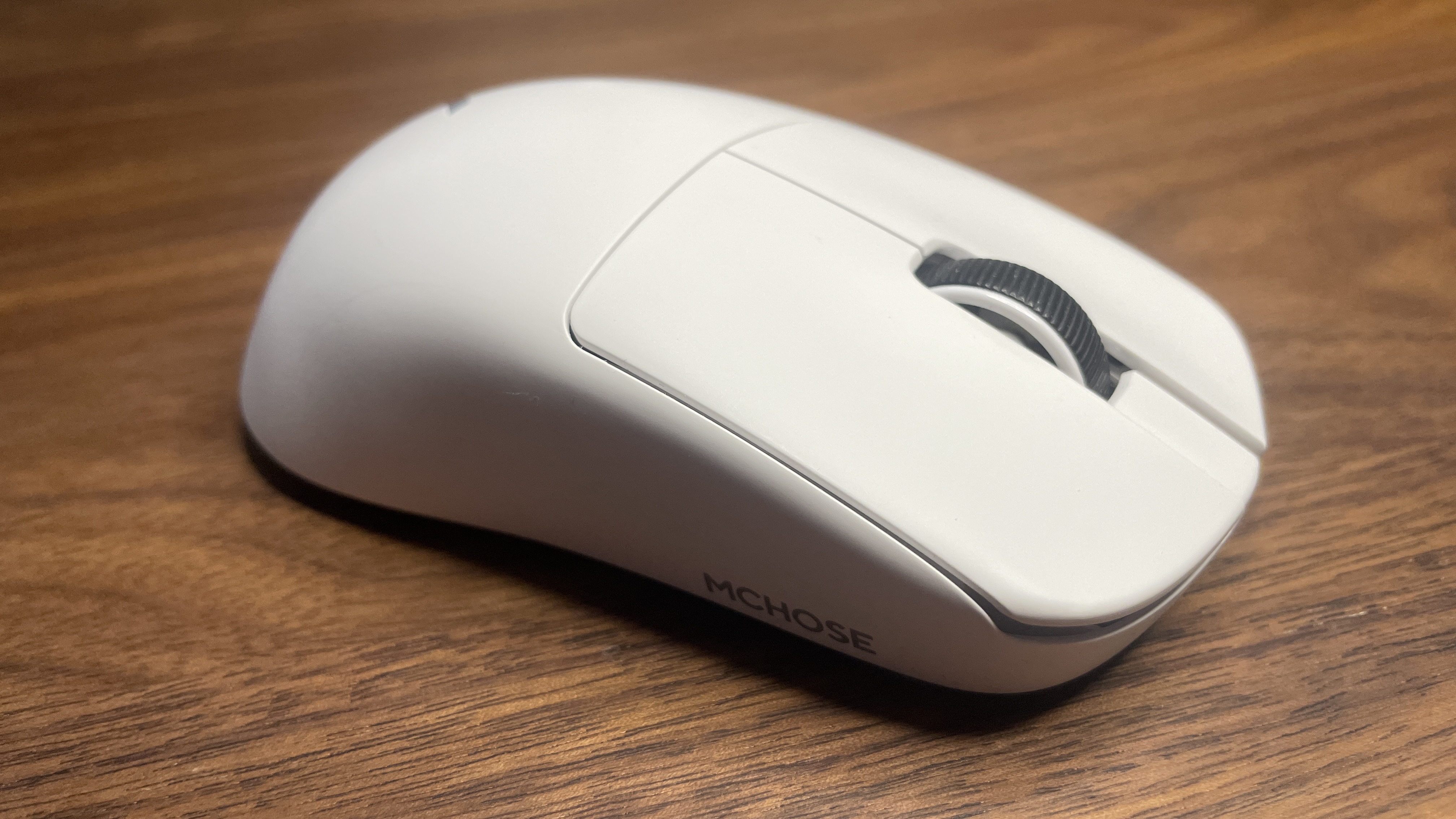Our Verdict
Enjoyable arcade handling packaged within a game that gets monotonous long before it rewards your time investment.
PC Gamer's got your back
What is it? The Fast and Furious films boiled down to repetitive arcade racing.
Expect to pay £55
Developer Ghost Games
Publisher EA
Reviewed on Windows 10, i5 6500, 16GB RAM, GTX 1070
Multiplayer Up to 8 players
Link Official site
It’s hard being Need For Speed in these modern times. The old staples that once ensured a Christmas chart-topping release—puke green Skylines out-NOSing each other to the finish line—have drifted out of contemporary appeal in the wake of Forza’s blockbuster simcade titles. 2015’s series reboot didn’t set the 23-year-old franchise back on track, and sadly nor has this much more ambitious effort from Ghost Games.
The problems begin with the esteem Need For Speed Payback holds the Fast and Furious franchise in. After all, if Vin Diesel one liner-ing his way through wafer-thin scripts about cars driving through skyscrapers makes for a box office smash, why can’t a game appeal to that same appetite? Everything about Payback—the quasi-Vegas setting Fortune City; the revenge plot; the love for tuners getting airborne and smashing things—harks back to those movies. Those movies which, famously, exist on a precarious ‘so bad it’s good’ appeal hanging above every set-piece like the sword of Damocles.
That appeal, the central kitsch of F&F, is lost in translation in Payback. The Hollywood set-pieces are jarring cut-scenes that rob you of the satisfaction of pulling them off, and the corny dialogue comes across as inept, rather than knowing. Central trio Mac, Tyler, and Jess have voice talent trying their hardest to make their lines sound like human beings communicating, but there’s evidently only so much you can do with lines like “Wow, the torque on this thing!” and “Guess I’ll just have to beat you all.”
More so than in previous games, Payback wants you to pay attention to its story. It wants you to care about taking down crime syndicate The House. It wants you to root for Tyler, Mac, and Jess as they plot the eponymous Payback on the underground racers who double-crossed them. It doles out cut-scenes like rewards. By doing so, it makes an inevitable weak point in the game’s construction impossible to ignore, and highlights the simplistic way story and in-game action are brought together.
If you want to do the thing Need For Speed has been about for over a decade (turning road cars into wide-body monstrosities), you need to grind for it.
Payback also badly is misjudges its pacing and draws out any sense of progression. This is an open-world game of The Crew and Forza Horizon’s mould, full of race events which become available as you make your way through the story, and shorter activities you can partake in upon discovering them. As the game’s radio frequently reminds you, this means there’s always something new to do in Fortune Valley—perhaps a new batch of drift storyline events, a jump to earn a three-star rating on, or a rival racer to beat in an impromptu faceoff.
That’s the theory, at least. In reality Fortune Valley just isn’t a very interesting place to drive through. Police appear only at scripted points during races so there’s no cop-baiting to be had while cruising. Finding jumps, speed traps, and billboards to smash quickly becomes repetitive, and doing these activities is required if you want to customise your car’s appearance. In other words, if you want to do the thing Need For Speed has been about for over a decade (turning road cars into wide-body monstrosities), you need to grind for it. Meanwhile, the Speed Cards which improve car performance, and indeed cars themselves, feel prohibitively expensive for much of the game, so there’s not much opportunity to experiment with cars or build up a large collection without a big time investment. Aka: grinding. And like I even need to say it, you can speed this whole process up with microtransactions—the icing on a flavourless grey cake.
On a GTX 1070 and i5 6500 running at 2560x1600, Payback can’t quite keep to 60fps at ultra settings, so some degree of graphics settings adjustment is required to hit that smooth v-synced frame delivery. The range of ten options is modest but enough to dial in an acceptable fidelity/performance balance on most systems, and but the engine seems prone to frame drops and slow downs on all settings. These drops, and the occasional car you drive right though in the game world, suggest a less than stellar technical foundation.
Keep up to date with the most important stories and the best deals, as picked by the PC Gamer team.
What Payback does well is what the series has always excelled at: satisfying arcade handling and a sense of speed. The exterior view’s camera sells you a sense of danger and being on the edge of control, and simply being in control of a car feels weighty and compelling. Then there are Side Bets, a tonally consistent new mechanic which throws in added objectives each race and alleviate the sense of repetition. Unfortunately they can’t compensate for the structural and narrative missteps which feel more grating the longer you play, until eventually the breezy powerslides and 150mph overtakes simply aren’t enough anymore.
Enjoyable arcade handling packaged within a game that gets monotonous long before it rewards your time investment.
Phil 'the face' Iwaniuk used to work in magazines. Now he wanders the earth, stopping passers-by to tell them about PC games he remembers from 1998 until their polite smiles turn cold. He also makes ads. Veteran hardware smasher and game botherer of PC Format, Official PlayStation Magazine, PCGamesN, Guardian, Eurogamer, IGN, VG247, and What Gramophone? He won an award once, but he doesn't like to go on about it.
You can get rid of 'the face' bit if you like.
No -Ed.





